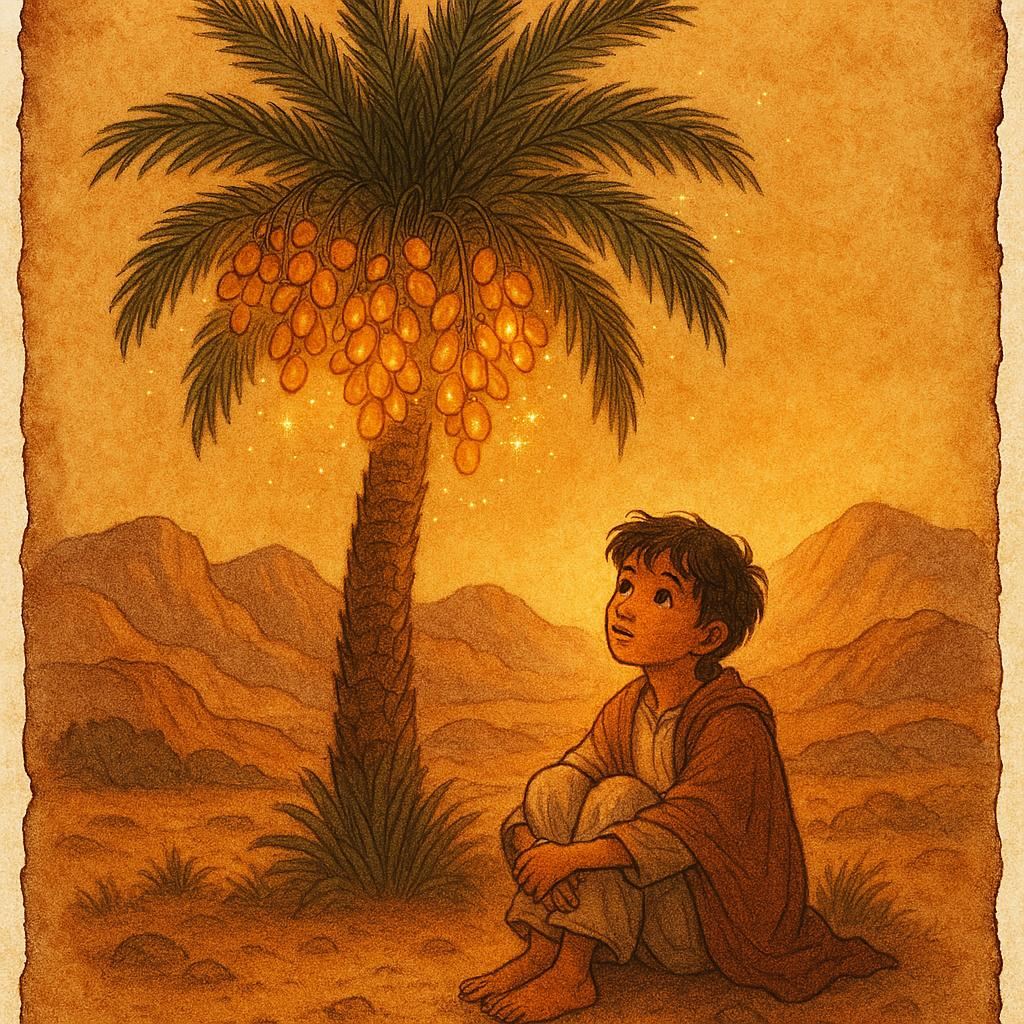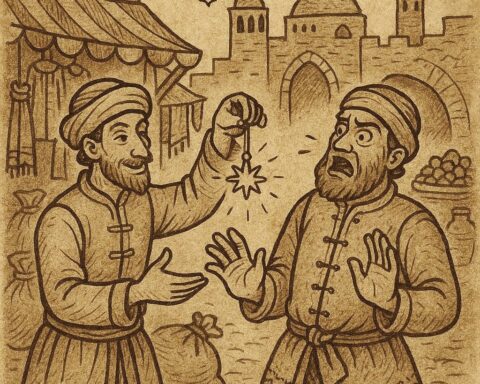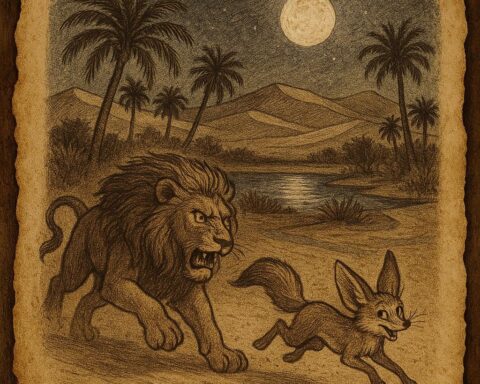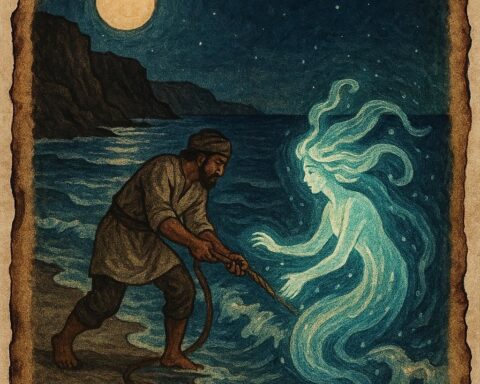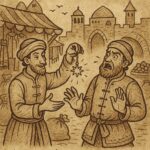In the sun-scorched hills of Jabal Akhdar, where the wind swept across endless stretches of rock and sand, there lived a young orphan boy. His parents had passed when he was very small, leaving him alone with only a humble home made of mud bricks and a small patch of earth where he grew sparse vegetables. Despite the harshness of his life, the boy’s heart remained full of hope. Each morning, he awoke before the sun, tending the tiny garden, gathering water from a distant spring, and caring for the few goats that wandered near his home. Though hunger often gnawed at his belly and the villagers rarely showed him kindness, he never gave up.
One day, as he walked along a dusty path searching for firewood, he stumbled upon a small, smooth seed partially buried in the earth. Something about it called to him. He picked it up, cradled it in his hands, and felt a warmth spreading from the tiny seed into his chest. Without knowing why, he planted it in his garden, covering it with soil and watering it carefully each day. The villagers laughed when they saw the boy tending to the small seed. “What can grow from that dry little thing?” they jeered. “You will only waste your time and water.” Yet the boy ignored their words, trusting that if he cared for it, it would flourish.
READ THIS: The Desert Fox and the Lion
Seasons passed, and to everyone’s astonishment, the seed began to sprout. A slender green shoot emerged, then grew taller and stronger, until it became a young date palm, its fronds swaying gracefully in the desert breeze. But this was no ordinary tree. The palm seemed alive with magic. Its leaves shimmered under the sun, and its trunk pulsed faintly, as if aware of the boy’s presence. Whenever he felt weak from hunger, the tree provided him with fresh dates that hung heavy in clusters. He ate the fruit gratefully, never taking more than he needed, and always thanked the tree silently for its generosity.
The villagers watched with envy as the orphan’s life changed. While their own harvests often failed and their children went hungry, the boy was never in want. Some of them, greedy and impatient, attempted to take the dates for themselves. They approached the tree under the cover of night, hoping to pluck its fruit. But the palm, sensing their ill intent, reacted swiftly. Thorns suddenly appeared along its trunk, catching and scratching the intruders. Frightened, the villagers fled, nursing minor wounds, and the tree’s fruit remained safe for the boy alone.
Despite the tree’s magic, the boy never became proud or boastful. He continued to live simply, tending his goats and sharing a small portion of his fruit with the children who treated him kindly. He often sat beneath the shade of the date palm, listening to the wind whisper through its fronds, imagining that it spoke to him. The tree seemed to encourage patience, telling him that virtue and care would always be rewarded.
One day, a severe drought struck Jabal Akhdar. The earth cracked under the sun’s relentless heat, and wells ran dry. Villagers grew desperate, fearing hunger for their families. They came to the orphan, hoping he would share the palm’s fruit. He offered what he could, but only enough to sustain them briefly. Some greedy villagers, unwilling to wait, returned that night to steal the dates. Again, the tree defended itself. Its fronds lashed like whips, and the intruders were forced to retreat empty-handed, humbled and fearful.
Through all this, the orphan remained patient. He knew that the date palm was not just a source of food but a teacher of endurance and hope. He learned that kindness, respect, and restraint were more powerful than greed or force. As the years passed, the palm grew taller and stronger, its roots sinking deep into the earth, drawing life from the hidden springs of Jabal Akhdar. It became a symbol of protection and resilience, not only for the boy but for anyone who approached it with respect.
Eventually, the boy grew into a young man. Though still humble, he had learned the value of hard work and patience. The villagers, seeing his perseverance and the magic of the palm, began to change their ways. They no longer mocked or envied him but sought guidance from the boy who had nurtured the magical tree. The palm remained a guardian of the orphan’s life, providing sustenance and shelter, a testament to hope, care, and the rewards of virtuous living.
Moral Lesson
This story teaches that hope and patience can transform even the harshest circumstances. Hard work, respect for what is sacred, and restraint in the face of greed lead to protection and prosperity. True virtue is rewarded, often in ways that others cannot see or replicate.
Knowledge Check
Who planted the magical date seed in the story?
A young orphan boy planted the seed and cared for it diligently.What magical power did the date palm have?
It provided the boy with fruit whenever he was hungry and defended itself against greedy villagers.How did the villagers react to the orphan’s magical tree?
Some were envious and tried to steal the fruit, but the tree’s magic punished them.What lesson did the orphan learn from caring for the palm?
He learned patience, hope, and the importance of virtue and restraint.How did the tree respond to greedy villagers?
It created thorns and lashes that forced them to retreat empty-handed.What themes are central to The Orphan and the Date Palm?
Hope, patience, justice, and the rewards of virtuous living.
Source: Libyan fairytale from Jabal Akhdar. Recorded in Ahmad Yusuf ‘Agila’s Libyan Fairytales (خراريف ليبية)(1968).
